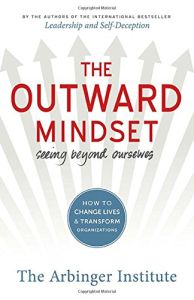
The Outward Mindset
Seeing Beyond Ourselves
Recommendation
The Arbinger Institute, which works on resolving conflicts and improving organizational cultures, offers an inspiring book about the way that your mindset – your relationship with the world and the people in it – can become a force for change. Arbinger illustrates its thesis with excellent case studies. Its manual explains how assuming an outward mindset – looking at concerns beyond your own narrow perspective – can lead to rewarding results for individuals and organizations. Arbinger reports that companies whose leaders recognize and deal with deeply entrenched mindsets have a much greater chance of implementing change than companies whose leaders do not. However, this guidebook doesn’t explain how the institute’s findings fit into the rich literature of management and organizational behavior – a shortcoming that detracts from an otherwise entertaining and useful treatment. Nevertheless, getAbstract recommends its warm perspective to human resources practitioners and senior managers who are working to change the cultures of their organizations.
Summary
About the Author
Working from offices in more than 20 countries, The Arbinger Institute provides services and advice to help companies, government agencies and individuals change their corporate cultures.

















Comment on this summary